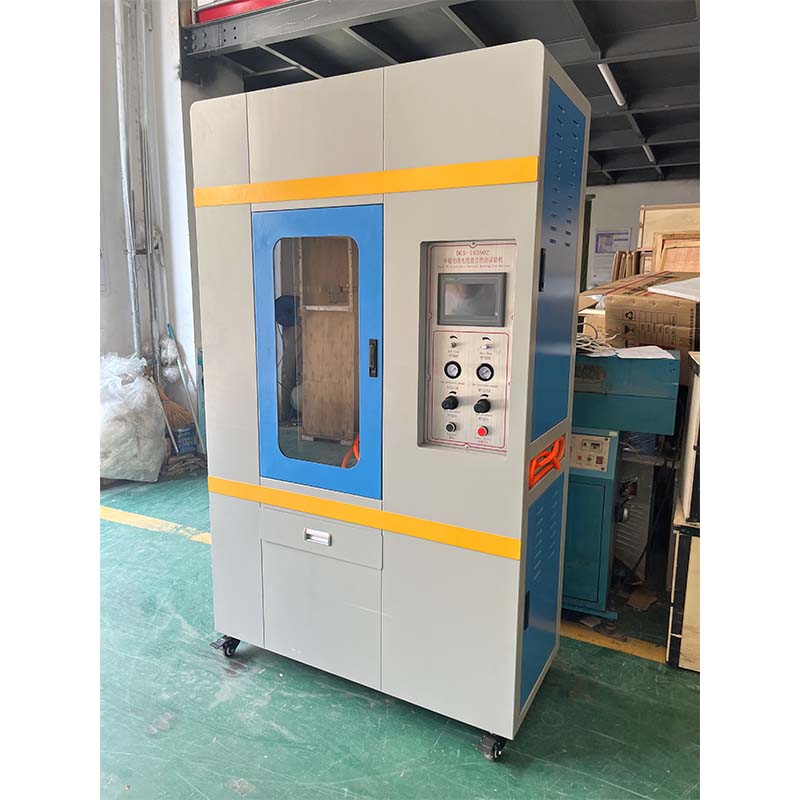custom machine that tests tensile strength
Custom Machines That Test Tensile Strength The Importance and Applications
Tensile strength is a critical property in engineering and materials science, defining the maximum amount of tensile (stretching) stress that a material can withstand without failure. This value is essential for ensuring the integrity and performance of materials used in various applications, from construction to automotive manufacturing. To accurately measure tensile strength, custom testing machines have been developed to suit diverse material types and testing requirements. These machines are tailored to provide precise measurements, ensuring that engineers and designers have the reliable data they need to make informed decisions.
Understanding Tensile Testing
Tensile testing, also known as tension testing, involves applying a uniaxial force to a sample material until it fails. During the test, various parameters are recorded, including the amount of force applied, the elongation of the material, and the stress-strain curve, which graphs the relationship between the applied stress and the resulting strain. The data obtained from tensile tests provides valuable insights into the material's mechanical properties, including yield strength, ultimate tensile strength, and elongation at break.
The Need for Custom Machines
While standard testing machines are available, they may not meet the specific needs of all industries or materials. Custom machines designed for tensile testing are tailored to address unique requirements, whether it be for particularly brittle materials, flexible polymers, or high-strength metals. These custom solutions can enhance accuracy, efficiency, and versatility in testing procedures.
1. Precision and Accuracy Custom machines allow for the use of specialized fixtures and grips that secure the material without introducing stress concentrations that could affect the results. Furthermore, these machines can be calibrated for specific load ranges and speeds, ensuring precise measurements are obtained.
2. Versatility Different materials require distinct testing conditions. For instance, highly ductile materials may require longer sample lengths and slower testing speeds, while harder materials need a different setup to avoid premature failure before the test can yield meaningful data. Custom machines can be designed to accommodate a wide range of materials and testing protocols.
3. Data Integration and Automation Modern tensile testing machines often incorporate advanced data acquisition systems to automate the process of measuring and recording results. A custom machine can be integrated with software that analyzes the data in real-time, allowing for immediate feedback and reporting.
custom machine that tests tensile strength

Applications Across Industries
Custom tensile strength testing machines are utilized across a multitude of sectors, each with distinct requirements
- Construction and Civil Engineering Materials like steel, concrete, and composites are tested to ensure they meet safety standards. Custom machines can simulate the conditions these materials will face in real-world applications, ensuring that they will perform as expected under load.
- Automotive and Aerospace The automotive and aerospace industries require materials that meet specific strength criteria to ensure safety and performance. Custom tensile testing machines can evaluate lightweight materials like aluminum and composites, helping engineers optimize designs for strength without adding unnecessary weight.
- Manufacturing and Fabrication Manufacturers often require testing of raw materials as well as finished products. Custom machines can be designed to test a combination of samples, ranging from individual components to complex assemblies, assessing tensile strength throughout the production process.
- Research and Development In academic and industrial research settings, tensile testing is essential for material development. Custom machines provide the flexibility needed for experimental setups and can accommodate new materials under investigation.
Conclusion
Custom tensile strength testing machines play a vital role in ensuring the performance and safety of materials across various industries. By adapting to specific material requirements and incorporating modern technology, these machines deliver accurate, reliable data that supports effective design and engineering decisions. As industries continue to innovate and expand, the demand for customized testing solutions will increase, reinforcing the importance of tailored tensile strength testing in advancing material science and engineering practices.
-
Why the Conductor Resistance Constant Temperature Measurement Machine Redefines Precision
NewsJun.20,2025
-
Reliable Testing Starts Here: Why the High Insulation Resistance Measuring Instrument Is a Must-Have
NewsJun.20,2025
-
Flexible Cable Flexing Test Equipment: The Precision Standard for Cable Durability and Performance Testing
NewsJun.20,2025
-
Digital Measurement Projector: Precision Visualization for Modern Manufacturing
NewsJun.20,2025
-
Computer Control Electronic Tensile Tester: Precision and Power for the Modern Metal Industry
NewsJun.20,2025
-
Cable Spark Tester: Your Ultimate Insulation Assurance for Wire and Cable Testing
NewsJun.20,2025
 Copyright © 2025 Hebei Fangyuan Instrument & Equipment Co.,Ltd. All Rights Reserved. Sitemap | Privacy Policy
Copyright © 2025 Hebei Fangyuan Instrument & Equipment Co.,Ltd. All Rights Reserved. Sitemap | Privacy Policy
